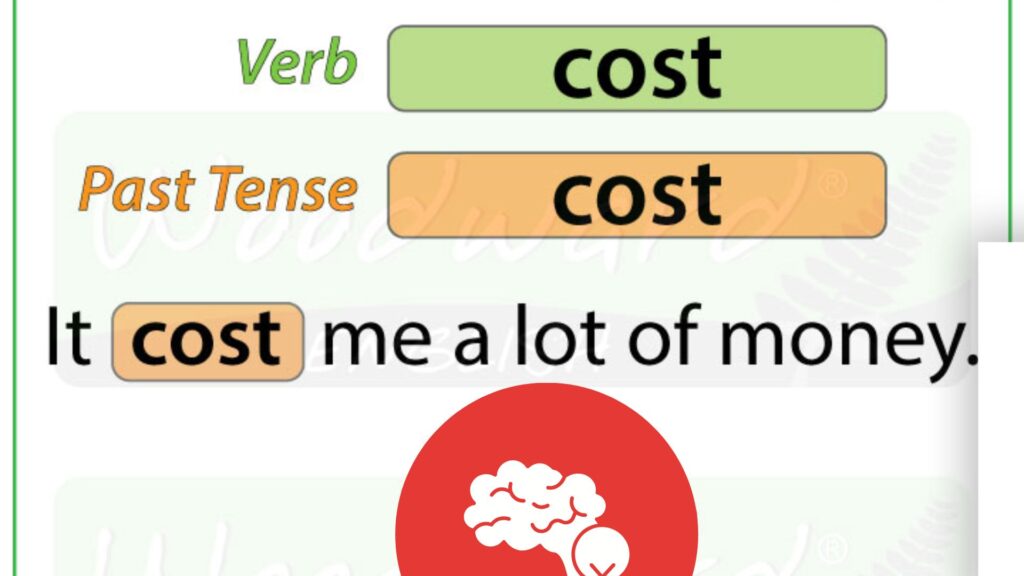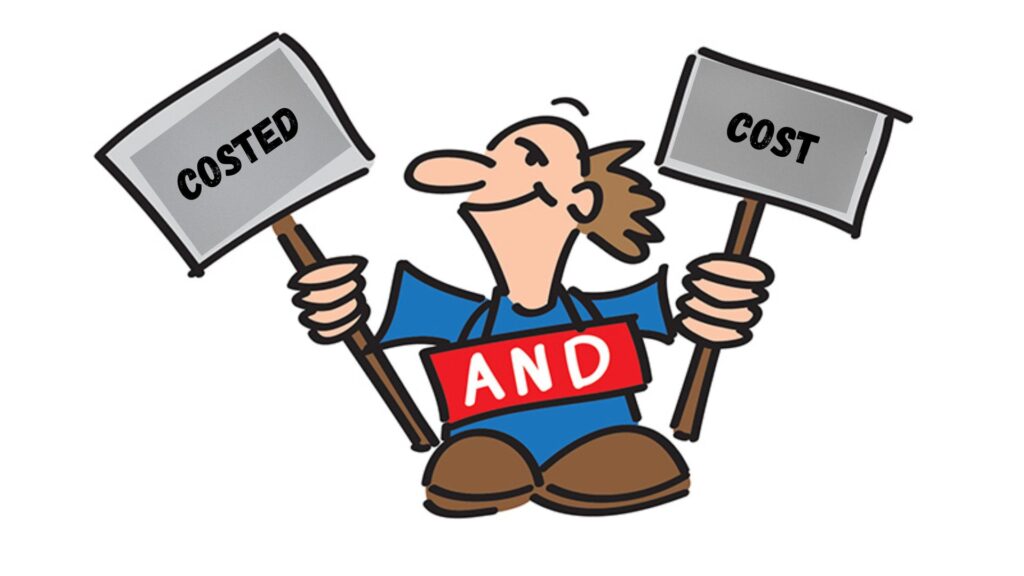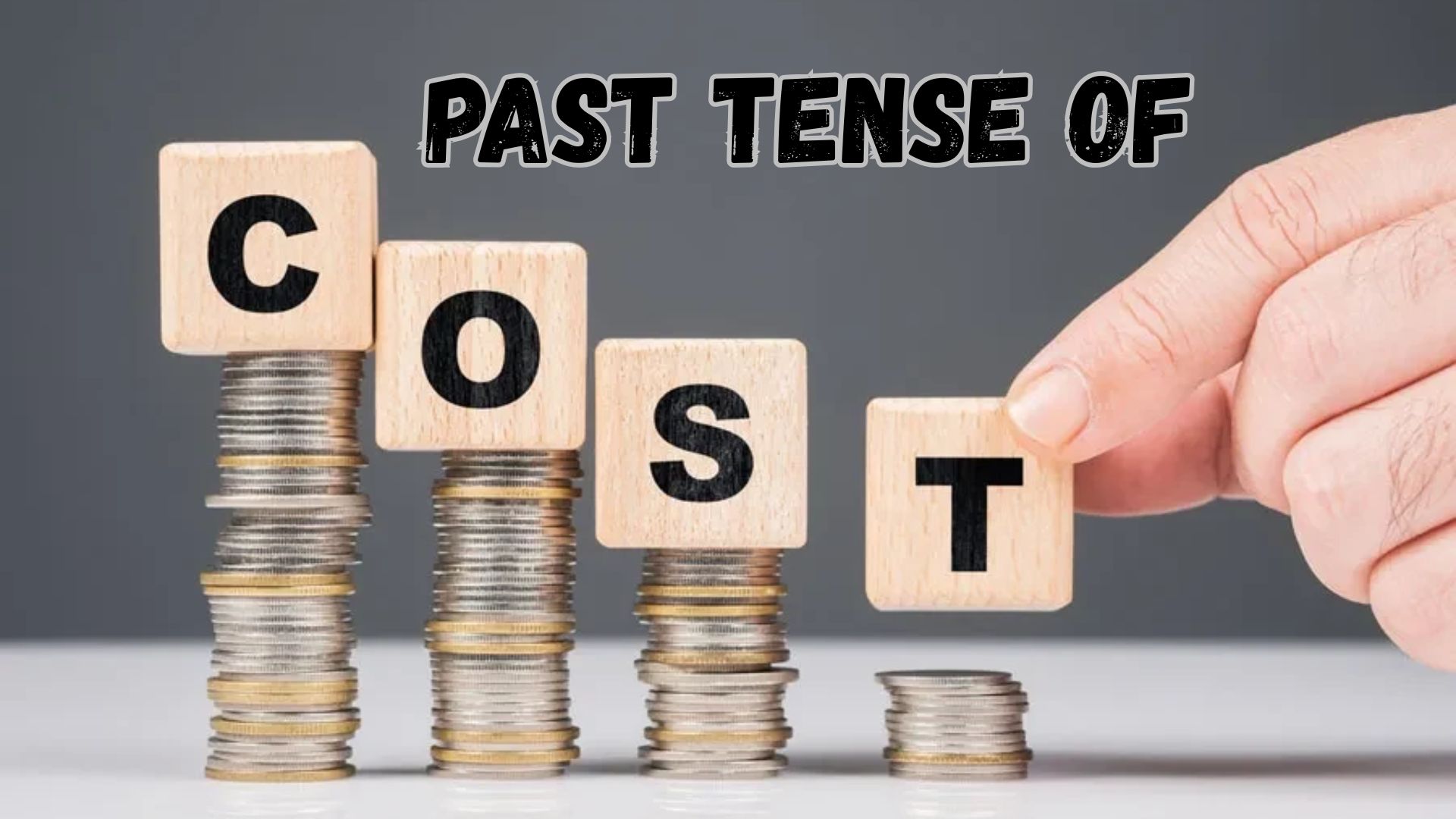Understanding the intricacies of the English language can sometimes feel like navigating a maze. One common question that often arises is about the past tense of the verb “cost.” Many people wonder, is it cost or costed? In this article, we’ll dive into the nuances of this verb, provide examples in different scenarios, and clarify any confusion.
The Basics of “Cost”

The verb “cost” refers to the price of something. For example, if you say, “This book costs ten dollars,” you’re indicating the current price. But what happens when you want to talk about the past?
The Past Tense Dilemma: Cost vs. Costed
When it comes to the past tense, “cost” is actually one of those irregular verbs. So, while you might think “costed” sounds logical, the correct form is simply “cost.”
Example Scenario: An Email Inquiry
Imagine you’re writing an email to a friend named Sarah who is curious about your recent purchase. Here’s how you might phrase it:
Subject: My New Laptop Purchase
Hi Sarah,
I just wanted to let you know that my new laptop cost me $1,200. I know it sounds steep, but I believe it will serve me well for years to come.
Let’s catch up soon!
Best,
John
In this example, “cost” clearly communicates the price in the past without confusion.
Why Do People Say “Costed”?

You might wonder why some people use “costed” instead of “cost.” This confusion often arises from the way verbs transform in the past tense. For many regular verbs, adding -ed creates the past form. However, since “cost” is irregular, it simply remains “cost.”
Example Scenario: A Business Meeting
Consider a business setting where you’re discussing project expenses with a colleague named Lisa:
Subject: Project Budget Review
Hi Lisa,
During our last meeting, we discussed the budget for the new website. I mentioned that the development phase cost $15,000. We need to ensure we stick to this budget moving forward.
Thanks,
Mike
In this context, Mike correctly uses “cost” to describe past expenses.
The Importance of Context
In English, context is key. Understanding the situation can help clarify which word to use. For instance, in formal writing, sticking with the standard forms is crucial.
Example Scenario: A Formal Report
Imagine you’re preparing a report for your company’s board members:
Subject: Quarterly Financial Report
Dear Board Members,
In Q2, our marketing campaign cost $50,000. We expect a significant return on this investment over the next few months.
Best regards,
Emily
Here, Emily’s use of “cost” aligns perfectly with the formal context, ensuring her message is clear.
Common Mistakes to Avoid
One common mistake is using “costed” in informal conversation. While it may slip into everyday speech, it’s essential to correct this in writing.
Example Scenario: A Casual Text
Imagine texting a friend named Tom about a concert ticket:
Hey Tom,
The concert tickets cost $75 each. I can’t wait to go!
In this casual setting, “cost” remains the correct choice, reinforcing the idea that clarity matters, even in informal communication.
When to Use “Costed”

While “costed” is not standard for the past tense of “cost,” you might encounter it in specific contexts. For instance, in accounting or project management, some professionals may use “costed” to refer to the process of calculating costs.
Example Scenario: A Project Management Discussion
In a project management meeting, you might hear:
Subject: Cost Analysis
Hello Team,
After analyzing the expenses, the total amount costed for the project includes materials, labor, and overhead. We need to address this in our next budget meeting.
Thanks,
Jessica
Here, Jessica uses “costed” to refer to a total calculation, not the past tense of the verb.
Conclusion: Mastering the Language
So, the next time someone asks is it cost or costed?, you’ll confidently assert that the correct past tense is “cost.” Understanding these nuances not only enhances your communication but also enriches your grasp of the English language.
In summary, always remember:
- Use “cost” when referring to past expenses.
- Reserve “costed” for specific contexts involving calculations or project management.

